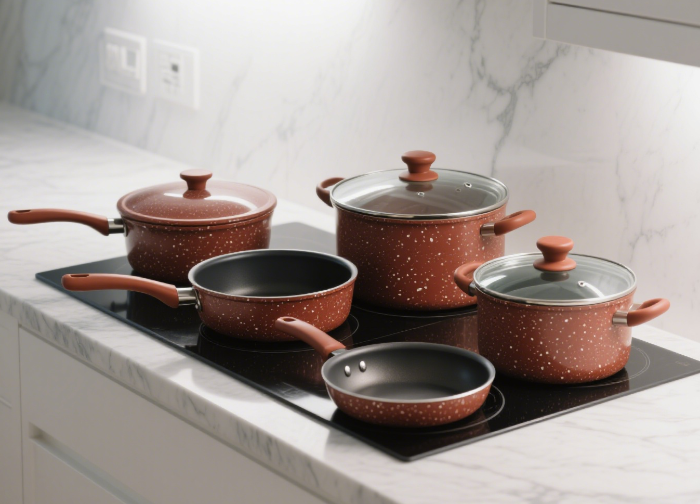Tips for Buying Aluminum Cookware from Wholesale Suppliers
Oct 24, 2025
When you decide to equip your business or kitchen with high-quality cookware, partnering with a Professional Kitchen Cookware Supplier becomes essential. Many buyers now turn to Wholesale Aluminum Cookware sourcing as a cost-effective way to stock their inventory or upgrade their kitchen fleet. But entering the wholesale aluminum cookware arena without proper knowledge can cause to pitfalls and disappointments.
Tip 1: Define Your Product Requirements Clearly
One of the more common procurement mistakes is vague specifications. To avoid misunderstandings, you should:
Specify the aluminum alloy grade (e.g. 3003. 5052. 6061)
Define wall thickness or base thickness tolerances
Identify the surface treatment or coating (anodizing, non-stick, ceramic)
Indicate compatible heat sources (gas, induction, halogen, etc.)
State handle material, lid type, packaging, and branding
By preparing a detailed product spec sheet, you ensure that the Professional Kitchen Cookware Supplier can respond accurately and you reduce the chance of quality mismatch.

Tip 2: Vet Suppliers Thoroughly
Review Certifications & Audits
A wholesaler claiming to supply aluminum cookware should back it up with certifications. Look for ISO 9001. food-contact certifications (FDA / LFGB), and any factory audits (BSCI, Sedex).
Request a Factory Tour or Audit
If feasible, visit the factory yourself or hire a third-party auditor to verify production capacity, quality control systems, staff skills, and working environment.
Ask for References
Ask the supplier to provide customer references or case studies who have used their Wholesale Aluminum Cookware for some time. Real feedback on durability, consistency, and delivery will be valuable.
Tip 3: Order and Test Samples First
Before committing to a bulk order, always test real samples:
Heat test: cook on high heat, check for warping
Food test: cook acidic foods (tomato sauce, lemon) to see any reaction
Coating test: scrub, wash, and cycle the pan to see how coating holds
Fit and finish: check lid fit, handle screws, seams, surface consistency
If a Professional Kitchen Cookware Supplier refuses to send you samples, that is a major red flag.
Tip 4: Pay Close Attention to MOQ & Lead Time
Many suppliers enforce Minimum Order Quantities (MOQs) and require delivery time buffers. Ignoring those can cause delays or forced compromises.
Negotiate with your supplier:
Ask if they accept smaller trial orders
Seek staggered delivery (split shipments)
Penalize late delivery in contract or ask for buffer margin
Understanding how MOQ and delivery time impact your cash flow and planning is critical.
Tip 5: Clarify Packaging, Shipping & Logistics
Aluminum cookware is heavy and fragile. Packaging matters a lot. Some considerations:
Use protective inserts or foam to avoid dents
Use sturdy cartons with internal division
Do drop test to simulate transit damage
Decide whether the supplier handles FOB / CIF / DDP terms
A Professional Kitchen Cookware Supplier with wholesale focus will often offer customizable and safe packaging for export orders.
Tip 6: Negotiate Payment Terms & Risk Mitigation
Always negotiate payment and risk controls:
Use escrow or letter of credit for initial orders
Split payments (e.g. deposit + balance on B/L)
Retain a portion until inspection and shipment
Use third-party inspection before shipment
These mechanisms protect you from non-delivery or subpar quality.
Tip 7: Establish Clear Quality Assurance & Warranty Agreements
Your contract should include:
Acceptable defect rates (e.g. 2 % visual, 1 % critical)
Warranty terms (coating peel, warping, handle loosening)
Return and replacement policy
Cycle tests and durability guarantees
If your supplier is a true Professional Kitchen Cookware Supplier, they’ll stand by their products and be willing to define these terms.
 English
English русский
русский Français
Français Español
Español Português
Português عربى
عربى














